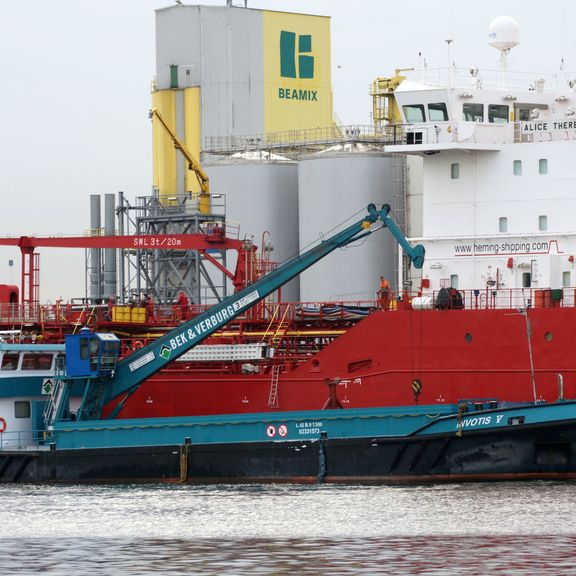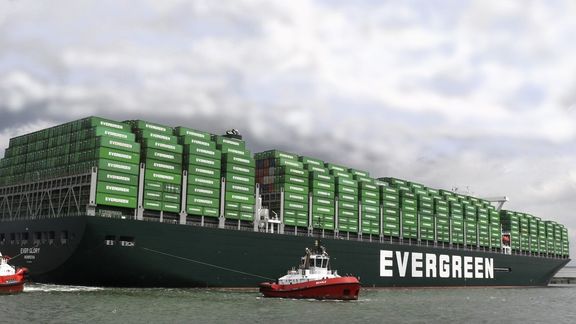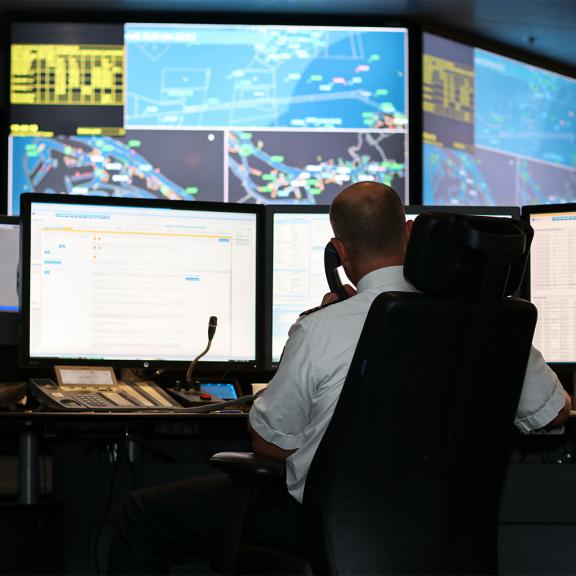
Ships’ waste
During (inter)continental voyages, ships produce ship-generated waste. In addition, cargo residues remain after the unloading of specific product flows.
SHIPS' WASTE SEAGOING SHIPS
Vessels produce ships' waste during continental and intercontinental voyages. In addition, cargo residues are left behind after the unloading of specific product flows. Seagoing vessels can dispose of all kinds of ships’ waste at the ports of Rotterdam, Schiedam, Vlaardingen, Maassluis, Moerdijk and Dordrecht.

Depositing waste
Seagoing vessels can dispose of ships’ waste at the port reception facilities. Under international legislation (UN/IMO/MARPOL73/78 and EU Directive 2000/59/EG), all seaports are obliged to facilitate adequate port reception facilities for ships’ waste from seagoing shipping. Port reception facilities can collect ships’ waste by means of mobile collecting facilities (vessels or vehicles) or fixed facilities (storage tanks). The collectors take the deposited waste by truck or barge to authorised waste processing companies. The Port Waste Handling Plan contains more information about depositing waste. A list of port reception facilities in the seaports of Dordrecht, Maassluis, Moerdijk, Rotterdam, Schiedam and Vlaardingen is also available.
Degassing
As of 1 January 2015 a degassing ban for benzene (UN 1114) applies in the provinces of South Holland and North Brabant. Vessels intending to degas this substance must do so at a port reception facility.
Waste disposal fees
The fees for the disposal of waste can be obtained from the designated collectors. The amount of the contributions and rights of disposal for all seagoing vessels are given in the Port Waste Handling Plan and the Port Tariffs brochure. Some waste flows are subject to indirect funding: vessels pay a contribution and are reimbursed (part of) the costs of disposal. The Port Waste Handling Plan contains extensive information.
SHIPS' WASTE INLAND SHIPPING
The port of Rotterdam has good facilities for the disposal of ships’ waste (commercial or domestic) from inland shipping. Whenever an inland vessel calls at the port of Rotterdam it can dispose of ships’ waste at the port reception facilities in the port. The port reception facilities are contracted to the SAB (Association for Inland Shipping Ships’ Waste and Navigation Documents).
Waste categories
Inland vessels can dispose of various kinds of waste in the port of Rotterdam and the ports of the Drecht cities. The collection, disposal and reception of ships’ commercial waste containing oil and grease, waste from cargo and other commercial waste are subject to uniform regulations laid down by Germany, Belgium, France, Luxembourg, Switzerland and the Netherlands in the Ship Waste Decree (CDNI). This legislation is incorporated in the Netherlands in the Ship Waste (Rhine and Inland Waterways) Decree. The decree identifies three types of waste:
A. Ships’ waste containing oil and grease;
B. Waste from cargo;
C. Other ships’ waste.
A. Ships’ waste containing oil and grease
This category covers waste from the engine room such as bilge water, used oil, filters, used cleaning rags and used grease. This waste must be deposited (and a delivery receipt obtained) with a collecting facility which has a contract with the Association of Maritime Services.
B. Waste from cargo
Cargo waste is generated during the transhipment and transport of dry and liquid cargo. The recipient or consignor of the cargo is responsible for the costs of cleaning the vessel’s holds and gangways after unloading. The handling facility indicates where waste or washing water can be deposited. A supervisor from the Harbour Master’s Division may request the skipper to prove the cleaning method and the quantity of deposited waste.
C. Other ships’ waste
Other ships’ waste covers the following kinds of waste: domestic waste, domestic waste water, slops from the holds and tanks and all waste not containing oil, including small hazardous waste such as batteries. There are waste containers for domestic waste at the public berths in the port area. Domestic waste can be deposited free of charge here. If you have bulky (domestic) waste and/or small hazardous waste, you can deposit this with a collector who is contracted to the SAB.
Inspections
In order to ensure the proper deposit of ships’ waste, employees of the Harbour Master’s Division regularly board vessels to check compliance with the environmental regulations and the Ship Waste Decree. Spills are subject to a fine and contamination is cleaned up at the expense of the party responsible.
Degassing
As of 1 January 2015 a degassing ban for benzene (UN 1114) applies in the provinces of South Holland and North Brabant. Vessels intending to degas this substance must do so at a port reception facility which has a vapour processing system. For more information about the substances which may or may not be degassed at the permitted locations in the port of Rotterdam, please consult the Rotterdam Bye-laws. You can also contact the Harbour Coordination Centre.
More information? Contact:
